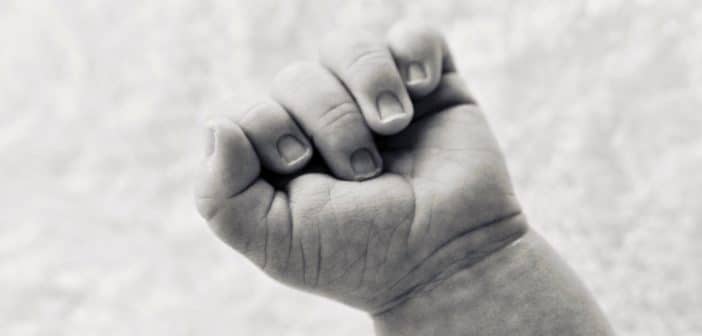 Report: Millions Spent on Oxycontin Marketing
Report: Millions Spent on Oxycontin Marketing
The nation’s opioid crisis currently claims 115 Americans per day, though it’s not difficult to see how prescription painkillers gained such a foothold, NPR reported on Tuesday. Over a five-year period starting in 2012, drugmakers like Purdue Pharma spent millions “promoting opioids to individuals most vulnerable to addiction”—a startling, if not disturbing revelation that suggests pharmaceutical industry preyed upon people while downplaying the risk factors and downsides of the drugs. The NPR piece notes that Missouri Democratic Senator Claire McCaskill released a 23-page report that “sheds light on the pharmaceutical industry’s efforts to shape public opinion and to fuel demand for such lucrative and potentially addictive drugs as OxyContin, fentanyl and Vicodin.” While Purdue Pharma says that it’s stopped marketing OxyContin to physicians, many critics haven’t lost sight on the damage already done. In fact, Senator McCaskill’s report might “bolster hundreds of lawsuits that aimed at opioid drugmakers,” which would hold companies like Purdue accountable for the opioid-related deaths of nearly 350,000 Americans.
Frances Bean Cobain Opens up About Addiction
Frances Bean Cobain, the daughter of rocker Courtney Love and late Nirvana frontman Kurt Cobain, celebrated two years of sobriety this week. “It’s an interesting and kaleidoscopic decision to share my feelings about something so intimate in a public forum,” Cobain said on Instagram Tuesday. “The fact that I’m sober isn’t really public knowledge, decidedly and deliberately. But I think it’s more important to put aside my fear about being judged or misunderstood or typecast as one specific thing. I want to have the capacity to recognize and observe that my journey might be informative, even helpful to other people who are going through something similar or different.” While the 25-year-old model didn’t get into specifics about her substance abuse in the lengthy post, a Page Six piece observed that Cobain’s substance-abuse problems may dovetail with her parents’ problems, but those problems certainly haven’t doomed her, either.
Los Angeles Fire Department Announces “Sober Unit”
The Los Angeles Fire Department announced on Monday its plans to handle increased EMS calls and a rise in intoxicated homeless individuals through a brand-new program. The LAFD SOBER (Sobriety Emergency Response) Unit is a pilot project involving both a firefighter and an outreach worker from the Los Angeles Homeless Services Authority (LAHSA), one story explained. The SOBER Unit will operate as a 12-month pilot program which “will identify public and serial inebriates and perform a medical clearance exam in the field to identify any acute medical issues that warrant ambulance transport to an ED,” the story said. “If the patient is medically cleared, the SOBER Unit will transport these individuals to [a center], where the patient can be monitored while they get sober, and then get placed into an appropriate detox program and transitional housing.” The program is innovative since patients in SOBER Unit areas wouldn’t get sent to hospitals, as they normally would.
New Bill Gives Parents Control over Their Kids’ Recovery
A new bill in Maryland will provide more authority to help parents of adults who are struggling with addiction. According to The Washington Post, the bill (sponsored by Maryland House minority leader Nic Kipke) will allow parents of adult children to “involuntarily admit their child to an in-patient treatment facility.” The children “must ‘not be a minor,’ must have ‘experienced a drug overdose’ and have ‘health insurance coverage as a dependent under the individual’s parent’s’ plan,” the story clarified. Not everyone is a fan of the idea, though. Other states have enacted similar involuntary-treatment laws, such as Massachusetts, where “its system has become an unintended mechanism for getting people into treatment” while it “was designed to be a system of last resort.” A law professor put a finer point on it in the Post story, commenting that involuntary treatment is “fundamentally un-American” and throws many civil liberties out the window. Despite the criticism, the bill’s sponsor Kipke is pushing forward, in order to “provide parents of [drug-addicted] children … an opportunity to interrupt their child’s addiction.”
Drug-Addicted Babies Have Become a “National Problem”
Time on Wednesday ran an affecting, if not disturbing piece about the growing “national problem” of drug-addicted babies. Showcasing two very different treatment approaches for two different babies in Chicago, the story revealed that the increasing number of drug-addicted infants is almost overwhelming. “The surge has outpaced the science, and no one knows the best way to treat the opioid epidemic’s youngest patients,” Time declared. The magazine further argued that hospitals around the United States are taking a scattershot approach to treating the tremors, hard-to-soothe crying, diarrhea and other hallmark symptoms of newborn abstinence syndrome.” Time says that the National Institutes of Health is investing $1 million to help researchers better identify treatment methods for affected children. In fact, a “rigorous multi-center study comparing treatments and outcomes in hard-hit areas” may start as soon as the end of this year. Complicating matters, however, is the fact that that the Centers for Disease Control and Prevention (CDC) doesn’t maintain data about drug-addicted infants. The CDC, however, estimates that “nearly 11 in every 1,000 U.S. births” involves some form of drug addiction.
Sponsored DISCLAIMER: This is a paid advertisement for California Behavioral Health, LLC, a CA licensed substance abuse treatment provider and not a service provided by The Fix. Calls to this number are answered by CBH, free and without obligation to the consumer. No one who answers the call receives a fee based upon the consumer’s choice to enter treatment. For additional info on other treatment providers and options visit www.samhsa.gov.




